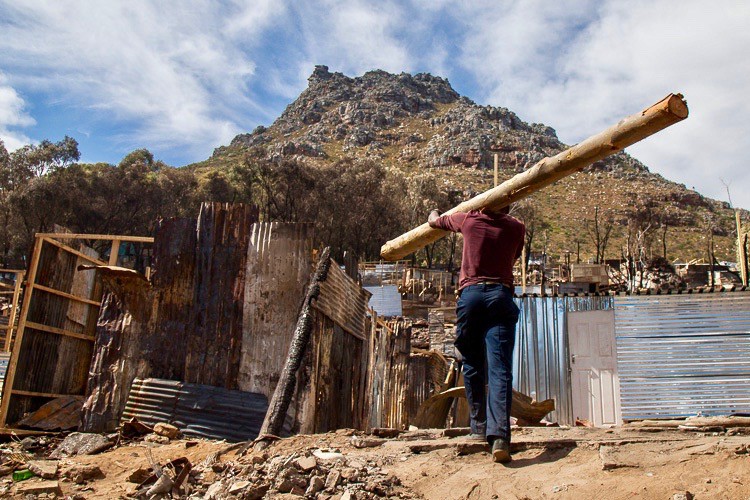Fire victims in Imizamo Yethu agree to halt rebuilding
Residents want City to explain re-blocking plans on site
Residents in Imizamo Yethu have agreed to stop building until they get clarity on the City of Cape Town’s re-blocking plans. It has been two weeks since almost the entire informal settlement was razed to the ground by a deadly fire. On Monday, the City obtained an interdict to demolish any rebuilt structures.
Lulama Dini from the Imizamo Yethu Movement says many people have agreed to the City’s plans.
“It is only some community leaders that are confusing some of the residents … those that were affected by the fire in 2004 and say they do not trust the City,” said Dini.
Community leader Clifford Nogwava, who is named in the interdict, said the City “cannot speak to a minority and say ‘residents have agreed’. They are using these new community leaders that have just emerged and do not know the history”.
Nogwava said, “We have until 1 June to oppose the interdict and we will oppose it should we not get the answers that we want.”
He said “we cannot have victims [of the fire], victimised again”.
Residents have told GroundUp they want to know exactly how long the reblocking would take and that they did not trust the timeframe given by the City, which was at first five days, then later, two weeks. They did not want to be housed in tents. They also wanted details on the size of the plots.
On Tuesday, some rebuilt shacks were demolished with the agreement on the community, clearing a small section of the fire affected area for re-blocking.
On Wednesday, City Executive Mayor Patricia De Lille said, “During the community meeting on Monday night, the residents of Madiba Square, who had already erected structures, agreed to remove them so that we could commence with the super-blocking project.”
“Super-blocking” would provide services in areas where density or other restrictive conditions do not allow for individual serviced sites. Blocks are separated by roads and pedestrian corridors, with electrification and communal taps and toilets for each block.
“We want to work with the City, but they need to gain our trust. They say different things to us than what they say to the media. We don’t trust them,” said Nogwava.
He said the City had agreed not to demolish the rebuilt areas until they had met with the residents on Friday.
Support independent journalism
Donate using Payfast

Don't miss out on the latest news
We respect your privacy, and promise we won't spam you.
Next: Paarl families living in apartheid hostels
Previous: Activists vow to continue fight for Tafelberg site
© 2017 GroundUp. 
This article is licensed under a Creative Commons Attribution-NoDerivatives 4.0 International License.
You may republish this article, so long as you credit the authors and GroundUp, and do not change the text. Please include a link back to the original article.

